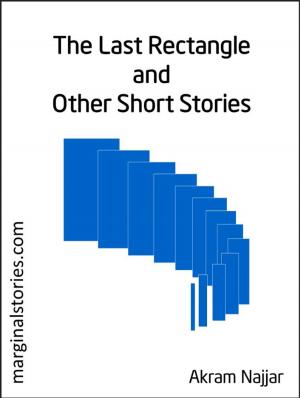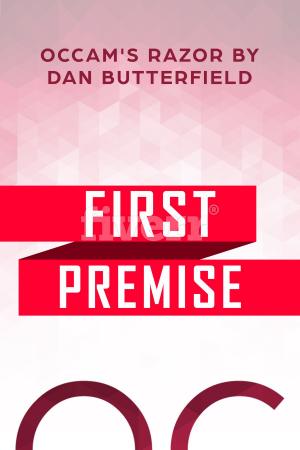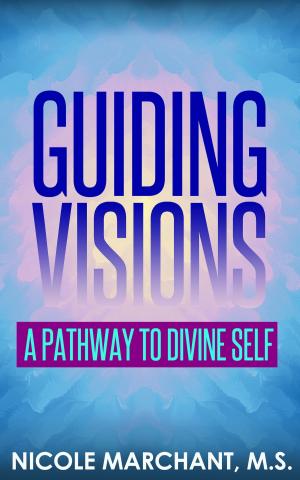Technical Writing for Business and Engineering Professionals
Business & Finance, Business Reference, Business Communication| Author: | Akram Najjar | ISBN: | 9781642371604 |
| Publisher: | Gatekeeper Press | Publication: | May 1, 2018 |
| Imprint: | Language: | English |
| Author: | Akram Najjar |
| ISBN: | 9781642371604 |
| Publisher: | Gatekeeper Press |
| Publication: | May 1, 2018 |
| Imprint: | |
| Language: | English |
Pragmatic technical writing for practicing writers who need to apply effective methods. This eBook focuses on writing as a process. Writing can consist of a task covering a few days or a team based effort of a few months. Since some writing tasks are large, an appendix is included that covers some aspects of project management that apply to a writing project (other aspects of PM are outside the scope of this eBook).
The eBook commences with considerations related to writing: what is ""technical"", what are the risks and ethical considerations in writing. It then discusses the 9 activities in a writing process:
Activity 1: Identify and Understand Your Readers
Activity 2: Segment Multiple Readers
Activity 3: Identify Information Providers and Collect Information
Activity 4: Determine the Document’s Sequencing or Flow Modes
Activity 5: Develop the Structure of the Document
Activity 6: Develop the Content of the Document
Activity 7: Develop and Integrate Visual Aids
Activity 8: Review, Evaluate and Update the Document
Activity 9: Finalize or Create a Camera-ready Document
Having provided the technical writer with a framework, the eBook proceeds by discussing various skills and techniques needed when writing:
• How to structure documents,
• How to develop effective and efficient documents,
• How to improve your writing skills,
• How to improve your argumentation and persuasion skills,
• The uses and misuses of language
• How to make technology work for you
The eBook is supported by a set of folders that can be downloaded. These consist of workouts, templates, various examples and even original images that are too large to be seen properly in an eBook (which has to be viewed on wide monitors as well 7 inch tablets).
About the Author
Akram Najjar is an engineer currently working as a Business Technology Consultant. He completed a B. Sc. in physics and mathematics at the American University of Beirut, Lebanon (1966). He took another B. Sc. in Electrical and Electronic Engineering from the University of Hertfordshire in England (1969).
Akram spent the first part of his career managing software development companies in Lebanon and the Arabian Gulf. By 1995, he concentrated on contractual work: IT Consulting, Business Process Reengineering, Project Management, Process Mapping, Data Analysis, Frameworks for Software Development and Technical Writing. He worked with various international organizations such as the World Bank, UNDP and the EU. In parallel with his consulting work, Akram focused on management training developing and conducting workshops for the above subjects. This and other books on his site are based on the experience acquired in these workshops.
The three types of books Akram writes (fiction, technical and puzzles) can be traced back to one incident when he was 12. His teacher introduced him to “Scientific American”. His name was David W. Miller. Mr. Miller’s whereabouts are not known today. But he is to be thanked and thanked again. The articles were above Akram’s head but his love for astronomy made the magazine fascinating. That eventually led him to study Physics and Mathematics. Coincidentally, the Greek Myths that were used to name the constellations got him interested in Literature, a love that led him to write fiction at a later date.
Akram also got hooked on the Mathematical Games column by Martin Gardner which was the reason Akram was set firmly in Puzzledom. Later on, it was second nature to him to work in software as a career. Software is an abstract practice that is full of puzzles whether you are designing, programming or debugging.
His eBooks are presented on two website. The www.marginalbooks.com site covers technical and literary books. All puzzles and games are presented on www.thehiddenpaw.com.
Pragmatic technical writing for practicing writers who need to apply effective methods. This eBook focuses on writing as a process. Writing can consist of a task covering a few days or a team based effort of a few months. Since some writing tasks are large, an appendix is included that covers some aspects of project management that apply to a writing project (other aspects of PM are outside the scope of this eBook).
The eBook commences with considerations related to writing: what is ""technical"", what are the risks and ethical considerations in writing. It then discusses the 9 activities in a writing process:
Activity 1: Identify and Understand Your Readers
Activity 2: Segment Multiple Readers
Activity 3: Identify Information Providers and Collect Information
Activity 4: Determine the Document’s Sequencing or Flow Modes
Activity 5: Develop the Structure of the Document
Activity 6: Develop the Content of the Document
Activity 7: Develop and Integrate Visual Aids
Activity 8: Review, Evaluate and Update the Document
Activity 9: Finalize or Create a Camera-ready Document
Having provided the technical writer with a framework, the eBook proceeds by discussing various skills and techniques needed when writing:
• How to structure documents,
• How to develop effective and efficient documents,
• How to improve your writing skills,
• How to improve your argumentation and persuasion skills,
• The uses and misuses of language
• How to make technology work for you
The eBook is supported by a set of folders that can be downloaded. These consist of workouts, templates, various examples and even original images that are too large to be seen properly in an eBook (which has to be viewed on wide monitors as well 7 inch tablets).
About the Author
Akram Najjar is an engineer currently working as a Business Technology Consultant. He completed a B. Sc. in physics and mathematics at the American University of Beirut, Lebanon (1966). He took another B. Sc. in Electrical and Electronic Engineering from the University of Hertfordshire in England (1969).
Akram spent the first part of his career managing software development companies in Lebanon and the Arabian Gulf. By 1995, he concentrated on contractual work: IT Consulting, Business Process Reengineering, Project Management, Process Mapping, Data Analysis, Frameworks for Software Development and Technical Writing. He worked with various international organizations such as the World Bank, UNDP and the EU. In parallel with his consulting work, Akram focused on management training developing and conducting workshops for the above subjects. This and other books on his site are based on the experience acquired in these workshops.
The three types of books Akram writes (fiction, technical and puzzles) can be traced back to one incident when he was 12. His teacher introduced him to “Scientific American”. His name was David W. Miller. Mr. Miller’s whereabouts are not known today. But he is to be thanked and thanked again. The articles were above Akram’s head but his love for astronomy made the magazine fascinating. That eventually led him to study Physics and Mathematics. Coincidentally, the Greek Myths that were used to name the constellations got him interested in Literature, a love that led him to write fiction at a later date.
Akram also got hooked on the Mathematical Games column by Martin Gardner which was the reason Akram was set firmly in Puzzledom. Later on, it was second nature to him to work in software as a career. Software is an abstract practice that is full of puzzles whether you are designing, programming or debugging.
His eBooks are presented on two website. The www.marginalbooks.com site covers technical and literary books. All puzzles and games are presented on www.thehiddenpaw.com.















